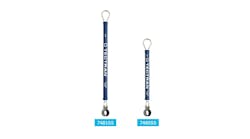Reefer maintenance strategies to address cold chain challenges
Interest in cold chain logistics has never been hotter. For 20 months or so, the pandemic has driven demand in the last-mile grocery sector, which set off the meal kit boom, as well as a global population’s worth of vaccines that must be kept frozen or refrigerated. With the apparent waning of efficacy of COVID-19 vaccines and potential for perpetual booster shots, that strain on the cold chain is unlikely to relent anytime soon.
The proof is in the prices. In the last year, reefer freight rates in the spot market have increased 26%, from $2.57 to $3.23, while contract rates rose 23%, from $2.41 to $2.96—this according to DAT Freight & Analytics. For refrigerated logistics companies, that means there’s a lot of money to be had, if they can overcome the challenge of finding enough drivers and assets, which along with demand are reasons prices have increased.
“Getting new equipment has become so difficult—lead times on getting new equipment is pushed out there,” said Christopher Tate, general manager of Thermo King dealer Mohawk Truck (and the most recent TMCSuperTech grand champion). “People are fixing up older and older equipment to have something to run."
These factors put the onus on the maintenance side, and their top challenge is to ensure those transport refrigeration units (TRUs) are humming and compressors thumping, whether they are on a van, box truck, or trailer.
The basics
The main issues Tate sees are due to battery and starting issues. The most important advice he offered was to keep up on preventive maintenance, which he said keeps small problems from turning into large ones.
Routine leak inspections are one example. Tate said depending on where a leak is, that could turn in to a several-hour fix, which includes recovering the refrigerant, repairing the leak, and evacuating and charging the system. That’s not something a driver or receiver will want to wait for.
Dwell time for repairs has become a growing concern, with repairs at some shops taking all day.
“With electronic logs, the drivers have a lot less flexibility in the hours of service, and the drivers have to be on the road running when they’re on the clock,” Tate said.
Blue Track by Thermo King, a service certification program for dealers, is one way the reefer giant has helped assure its customers some peace of mind. Launched in 2020, the standardized and enhanced service addresses the major pain points refrigerated transporters face.
“Our customers are hauling medicine and food, and they want to do it safely and keep product fresh,” said Jonathan Pyles, Thermo King dealer development manager. “And through working with them, we've kind of distilled it down to five major areas.”
These include “proactive and transparent customer communications, triage and express services, dwell-time monitoring, parts inventory management, and extended dealership hours,” according to Thermo King.
There are currently 56 Blue Track by Thermo King members, with more on the way. The Buffalo-area-based Mohawk is on pace to become a member by the end of the year.
“The triage is extremely important,” Pyles said. “Some of the complaints that we've heard from customers is that no matter where they took their units, sometimes the dwell time was a lot longer than what they expected for a simple repair.”
Prioritizing quick jobs in express lanes run by seasoned technicians helps customers get back on the road far quicker and improve uptime, both Tate and Pyles noted.
Blue Track by Thermo King requires dealers to remain open 55 hours of per week; Mohawk is open 7 a.m. to 11:30 p.m. on weekdays, or 82.5 hours. This presents a major hurdle as longer hours require more skilled professionals, which like equipment are also in short supply.
“The big challenge today is just finding a technician in general,” Tate said. “The labor force is so thin right now.”
Spec’ing for success
Success starts with spec’ing the right equipment. Thermo King recently refreshed its Precedent S-Series TRU platform to improve total cost of ownership and reduce unplanned maintenance.
“We put a new grill over the condenser on the front for improving the air flow going through the unit— better airflow means better cooling,” explained Tom Kampf, Thermo King senior product manager for trailer. “With this new grille design, we also offer better road protection from rocks and bugs and hailstones now than we did previously.
“Although it wasn't a big problem, we did have some customers saying they were seeing damage to the coils after two or three years or operation if they run into a bad hailstorm or they happen to get into some rocks,” Kampf added.
Thermo King also made some mechanical changes to its S-Series platform, which is Evergreen California Air Resource Board (CARB) and EPA emissions compliant. Thermo King said there are about 80,000 Evergreen units in North America.
First, the engineers developed a dual fuel filtration method for the TRU.
“It’s very similar to what they've been doing them in Class 8 truck world for quite a while,” Kampf said. “One is a primary filter—it separates water and holds it for draining at the maintenance. And then the second filter is just a little finer media to keep that fuel as clean as possible.”
The S-Series EGR system also has an improved maintenance interval, moving from 3,000 hours of operation to 10,000-plus hours, designed to “fix on fail,” Kampf said.
With this change alone, maintenance shops that work on reefer systems will recoup several extra hours per unit.
“It's about 1.5 hours to remove the cooler on the EGR, and to clean the valve and piping,” Kampf said. “Most customers will take replacement cooler that's already been cleaned and put it back down. Otherwise you'd have to wait for five or six hours for it to soak.”





